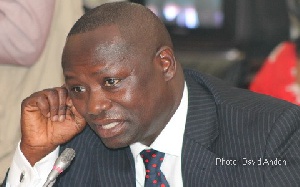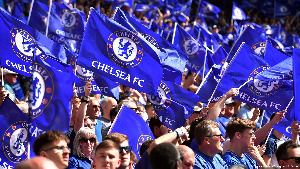The prices of petroleum products will go up by between 10% and 15% tomorrow, influenced by continuous fall of the cedi, full deregulation and 17.5% Special Petroleum Tax.
This will be the third time the prices of petroleum products will be increased after the International Monetary Fund’s (IMF) three-year bailout programme took effect.
Prices of petroleum prices first went up by 9% in the middle of May. Again, prices increased by 4% in the middle of June this year.
With the IMF pushing for an end to subsidies, government has chosen the path of full petroleum deregulation.
Industry players attribute the increases purely to foreign exchange losses as a result of the fall of the cedi, and not necessarily the rise in crude oil prices.
Others say that the actual deregulation policy – where importers and marketers price the commodity in order to recover the full cost of every product sold – kicks off tomorrow.
At the time of going to press yesterday, the cedi was being exchanged at GH¢4.3 and sold for GH¢4.5 to $1 at forex bureaus in Accra.
This year, the cedi has depreciated by over 23% against the dollar. Last year, the cumulative depreciation was 31.2%, compared with 14.5% in 2013.
Industry players are of the view that the severe impact of Special Petroleum Tax of 17.5% and numerous taxes, coupled with continuous fall of the cedi, are fuelling the increases.
Some industry experts have called on government to scrap the 17.5% Special Petroleum Tax or review it downwards drastically.
The severe impact of Special Petroleum Tax of 17.5% and the mitigation levy being proposed by government will be felt when prices of crude oil begin to rise.
Already, Special Petroleum Tax of 17.5% was imposed on selected petroleum products in November last year.
Currently, the cost of levies, VAT and distribution margins sum up to 30% on the prices of petrol and diesel, according to industry watchers.
Players in the importation and distribution of petroleum products warned that Ghanaians will continue to pay more for petroleum products as long as the cedi continues to depreciate and the Special Petroleum Tax of 17.5% remain intact.
To mitigate the harsh effects of the full deregulation, the National Petroleum Authority (NPA) has reduced the margin of OMCs by 0.067 pesewas, which means the OMCs would lose GH¢2 million of their margin every month.
The NPA has also reduced Primary Distribution Margin (PDM) by 2 pesewas.
According to information gathered by The Finder, NPA has also reduced the margin for Bulk Oil Distributors, all in an attempt to minimise the impact of the full price deregulation.
Ironically, Ghanaians enjoyed only 12% reduction in the prices of petroleum products last year when the price of crude fell by about 60% on the world market.
Fuel price adjustment, which is upward, has many ramifications on the micro- and macro-economy of Ghana.
In other jurisdictions, what is done when world prices rise so much above what people can bear is for the government to cushion people by reducing taxes, which currently constitute 40% of ex-pump price of the products.
The current debts owed the Bulk Oil importers is said to have hit about GH¢3.4 billion, a situation which has come about as a result of unpaid subsides.
These increments in petroleum products should facilitate the clearing of all the debts owed Bulk Oil distributors as a result of unpaid subsidies.
General News of Tuesday, 30 June 2015
Source: The Finder













